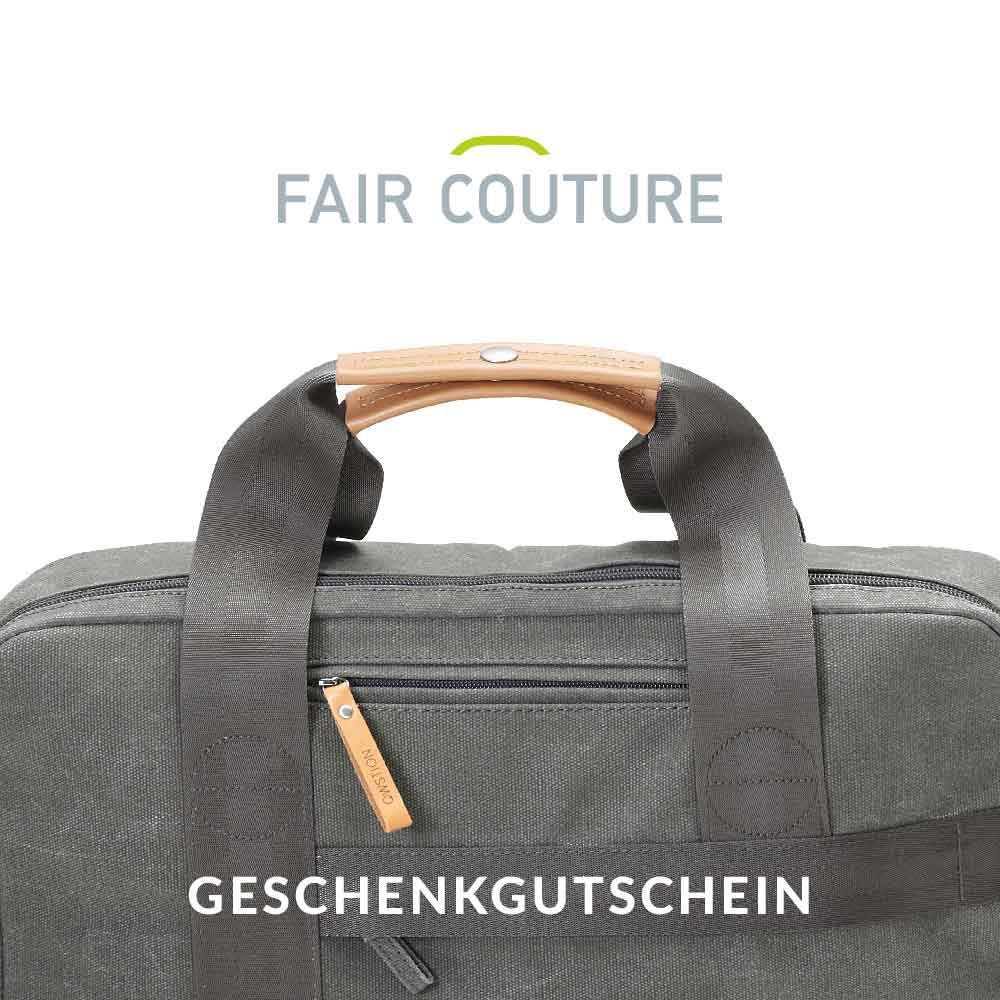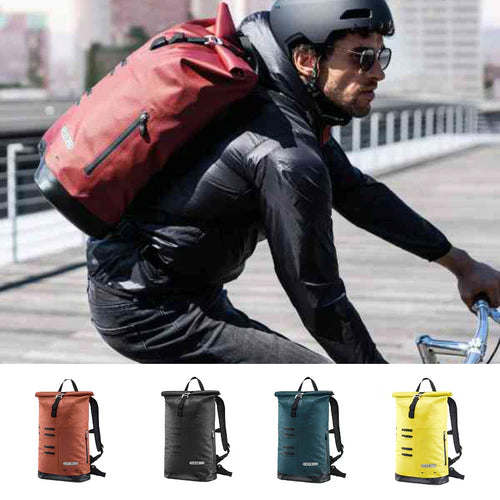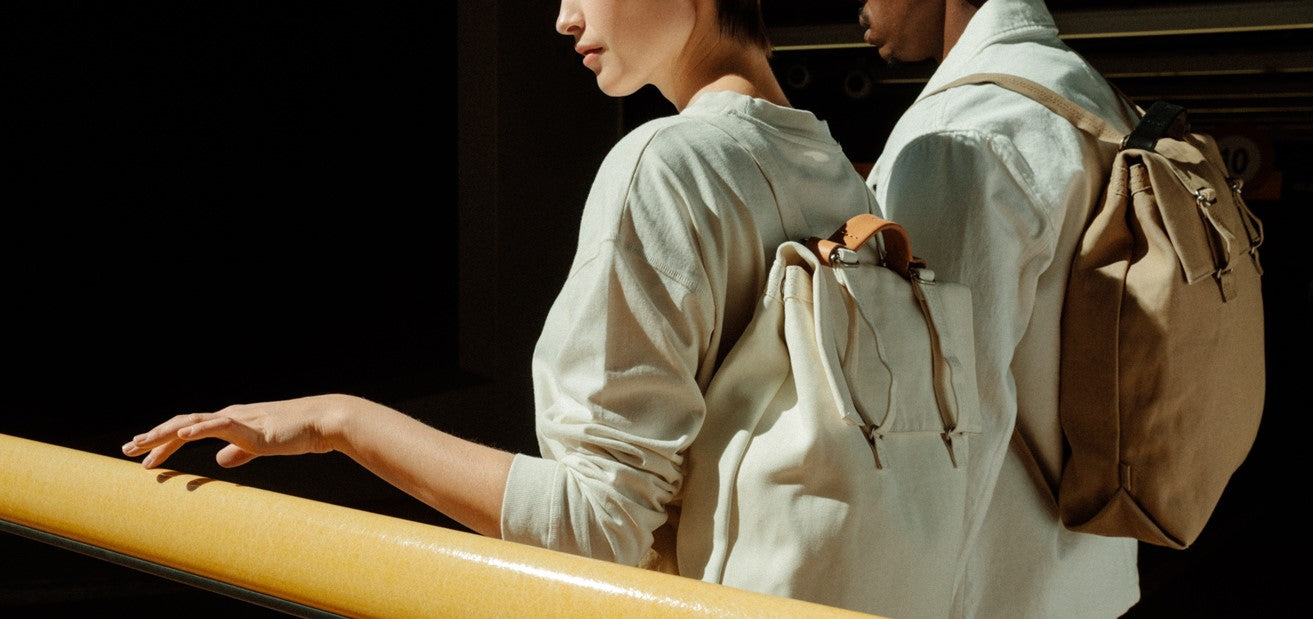What is sustainable fashion and what is the difference to conventionally manufactured clothing? The conventionally manufactured clothing industry, which has existed for decades, consists of a system of social exploitation and environmental pollution. Conventional fashion is primarily made by people in Asia and Eastern Europe. The seamstresses are exposed to catastrophic working conditions and receive poorly paid wages that are far below the subsistence level and force them to live in poverty. Environmental aspects are also ignored in the production of conventional clothing. This results in a high consumption of resources and pollution of our environment. The fashion industry is now the second largest polluter after the oil industry. It is time to change these conditions. In contrast to conventional fashion labels, sustainable fashion represents the change towards greater responsibility towards the people who produce the fashion and our environment. At the same time, the sustainable production of fashion is an important contribution to climate protection.
When is clothing sustainable fashion and fair fashion?
Sustainable fashion is described as sustainable and fair if the well-being of people and the environment is the focus of production. Social and ecological standards and seals are met to ensure that the clothing was produced ethically and ecologically correctly and that no negative CO2 footprint was left behind.
Sustainability Definition: What is behind the term sustainability?
Sustainability is a broad term and includes the entire value chain in the manufacture of a product. The focus is on ecological and social aspects. These include resource-saving processes with low water and energy consumption, the use of recycled, biodegradable materials, regional production and fair and social working conditions .
Criteria for sustainable and fair clothing and accessories
Clothing can be labeled as sustainable and fair fashion if the seamstresses and seamstresses are sufficiently paid, have social security and safe working conditions are guaranteed. The contractually regulated working hours must also be adhered to and no child labor, discrimination or forced labor may take place. Many fair fashion companies sign long-term contracts with the factories in which the clothing is produced in order to avoid short-term contracts with seamstresses and to guarantee them more stability.
Sustainable backpacks & bags
Fair fashion brands attach great importance to the same standards that customers are already used to, but with one crucial difference. In addition to the usual quality, fair working conditions and environmental standards are the top priority, which can be recognized by the corresponding seals and certificates. The selection of materials is also subject to strict quality controls. Sustainably produced backpacks and brands primarily use biodegradable materials such as cotton, linen or flax. Innovative materials such as recycled polyester, bananatex and cork are also being used more and more in sustainable backpacks and bags.
Why should we buy sustainable fashion?
With our purchasing decision, we support certain companies and thus automatically their production conditions. If we want to ensure that our clothes are made under socially just, ethical and environmentally friendly conditions, then we should buy sustainable fashion. If we focus our consumption on sustainable and fair fashion, we automatically give less money to conventional fashion companies whose clothing is based on exploitation and environmental pollution, thereby reducing their sales. Only sustainable consumption and fair fashion lead to extensive change in the fashion industry.
Conscious consumption with slow fashion
Fair fashion is much more than their products and production conditions, it symbolizes a mindset towards slow fashion and a change towards more responsibility towards the people who produce the clothing and our environment. Slow fashion stands for deceleration . When we deal with the production methods of clothing, we develop a conscious approach to fashion and critical thinking against blind consumption. We question our own purchasing behavior and consume fashion more consciously, sustainably and conscientiously.
Gentle manufacturing for fair trade clothing
Fair trade clothing is fashion that has the Fairtrade seal and has been manufactured using 100% organic natural fibers under ecological and social standards. Substances that are harmful to health and the environment are not permitted in the production processes of organic clothing. This guarantees gentle production, which has a positive effect on people and the environment.
Organic fashion
Fair fashion is also often known under the term organic fashion, green fashion, eco fashion, natural fashion, green fashion or eco fashion. These terms are derived from the manufacturing conditions. Because purely biodegradable and environmentally friendly materials are used for organic clothing and eco clothing.
Recycled & upcycled materials
Recycled and upcycled materials are used for many sustainable fair fashion pieces. This includes recycled polyester from PET bottles, by-products or production residues. Recycled cotton and recycled wool are also often used. By using recycled and upcycled materials, materials that are already in the textile cycle are used and no new resources have to be obtained. This can guarantee a better environmental balance and lower resource consumption.






